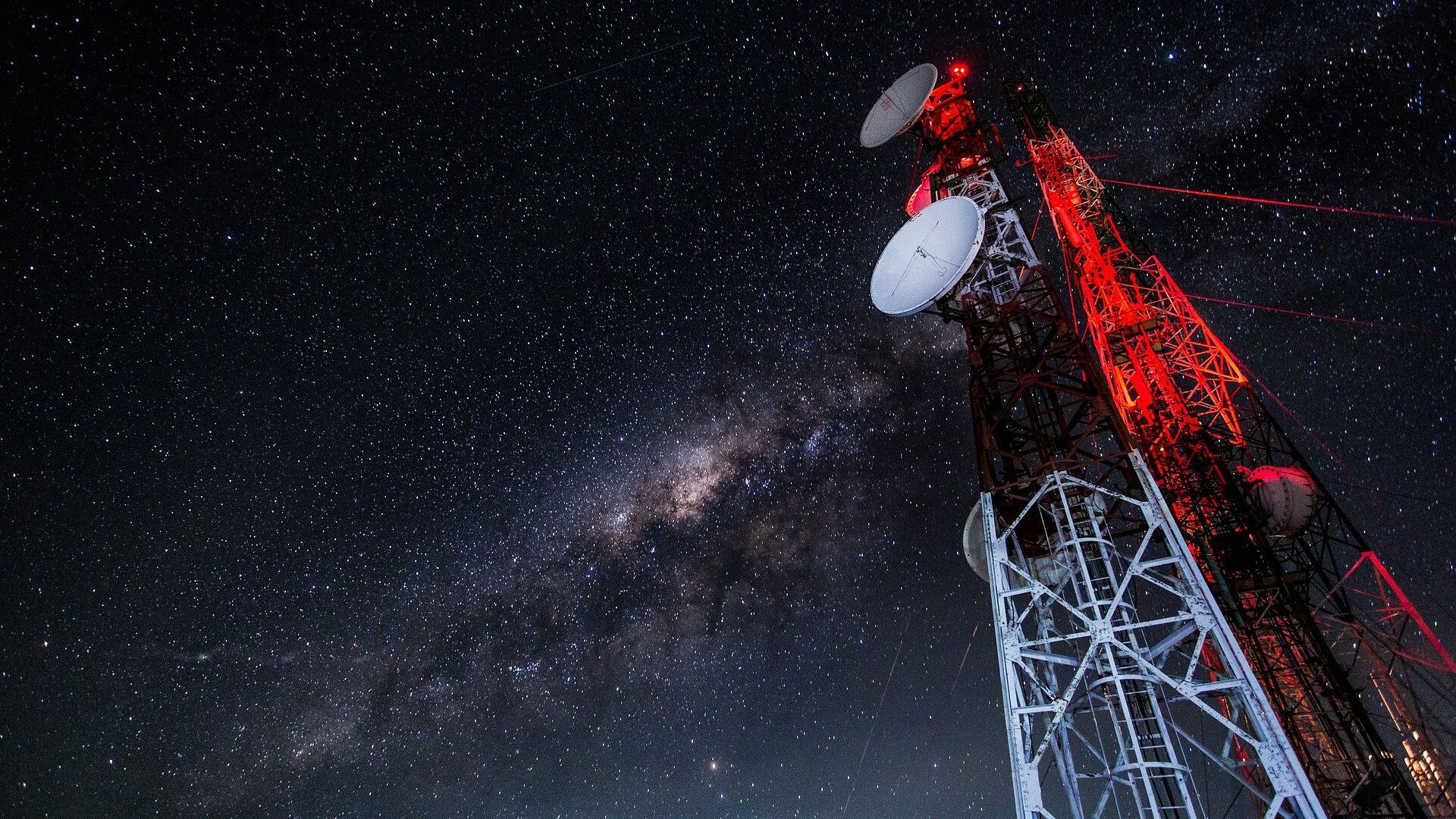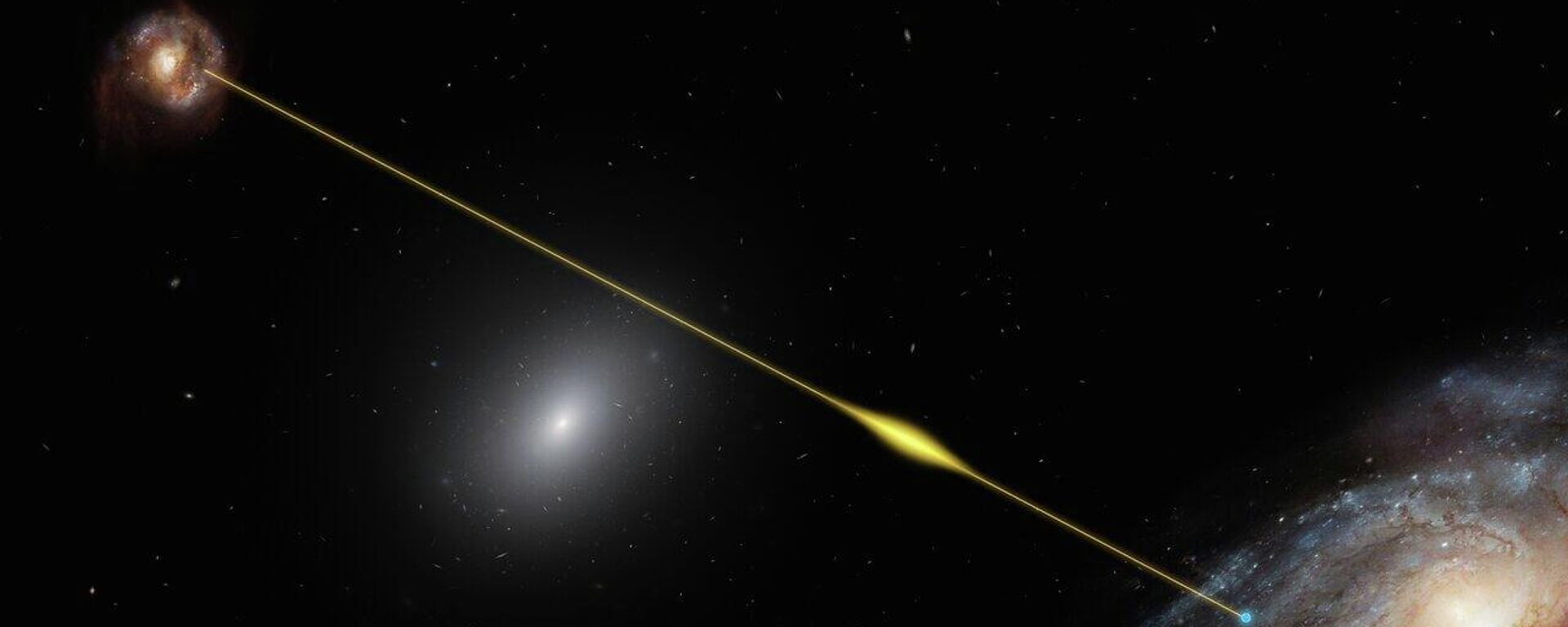https://sputnikglobe.com/20230503/can-advanced-alien-civilizations-eavesdrop-on-earth-1110053685.html
Can Advanced Alien Civilizations Eavesdrop on Earth?
Can Advanced Alien Civilizations Eavesdrop on Earth?
Sputnik International
The team behind the new research has simulated "radio leakage" from mobile towers around the globe in order to try and determine whether someone in outer space might pick up these signals.
2023-05-03T16:20+0000
2023-05-03T16:20+0000
2023-05-03T16:20+0000
beyond politics
science & tech
earth
signals
aliens
detection
https://cdn1.img.sputnikglobe.com/img/105228/36/1052283611_0:100:1921:1180_1920x0_80_0_0_0aa0660818ae6c82fe2ada5b7f5bb789.jpg
A sufficiently advanced alien civilization, if it was located in a star system a few light years away from our planet, would be able to detect the presence of life on Earth thanks to all the signals that mankind broadcasts, claims a new study conducted by researchers from the University of Manchester and the University of Mauritius.The scientists have arrived at this conclusion by simulating "radio leakage" coming from mobile towers and trying to gauge whether it would be possible to detect these signals from stars located relatively close to Earth, such as Barnard's star some six light years away.Professor Mike Garrett, director of the Manchester University’s Jodrell Bank Center for Astrophysics and team leader of the project in question, pointed to the "proliferation of mobile communication systems" in the world, which he described as "profound."The researchers now intend to expand their scope of work by adding signal leakage from radars, Wi-Fi networks and satellites to the equation in a bid to determine how these signals may be perceived from outer space.
https://sputnikglobe.com/20230428/repeating-alien-radio-signals-from-space-may-unlock-one-of-astronomys-mysteries-1109916456.html
earth
Sputnik International
feedback@sputniknews.com
+74956456601
MIA „Rossiya Segodnya“
2023
News
en_EN
Sputnik International
feedback@sputniknews.com
+74956456601
MIA „Rossiya Segodnya“
Sputnik International
feedback@sputniknews.com
+74956456601
MIA „Rossiya Segodnya“
can aliens see us, are radio signals visible from space, can aliens detect us, can earth be spotted by aliens
can aliens see us, are radio signals visible from space, can aliens detect us, can earth be spotted by aliens
Can Advanced Alien Civilizations Eavesdrop on Earth?
The team behind the new research has simulated "radio leakage" from mobile towers around the globe in order to try and determine whether someone in outer space might pick up these signals.
A sufficiently
advanced alien civilization, if it was located in a star system a few light years away from our planet, would be able to detect the presence of life on Earth thanks to all the signals that mankind broadcasts, claims a new study conducted by researchers from the University of Manchester and the University of Mauritius.
The scientists have arrived at this conclusion by simulating "radio leakage" coming from mobile towers and trying to gauge whether it would be possible to detect these signals from stars located relatively close to Earth, such as Barnard's star some six light years away.
Professor Mike Garrett, director of the Manchester University’s Jodrell Bank Center for Astrophysics and team leader of the project in question, pointed to the "proliferation of mobile communication systems" in the world, which he described as "profound."
"Current estimates suggest we will have more than one hundred thousand satellites in low Earth orbit and beyond before the end of the decade," he said as quoted in a press release issued by the University of Manchester. "The Earth is already anomalously bright in the radio part of the spectrum; if the trend continues, we could become readily detectable by any advanced civilization with the right technology."
The researchers now intend to expand their scope of work by adding signal leakage from radars, Wi-Fi networks and satellites to the equation in a bid to determine how these signals may be perceived from outer space.



